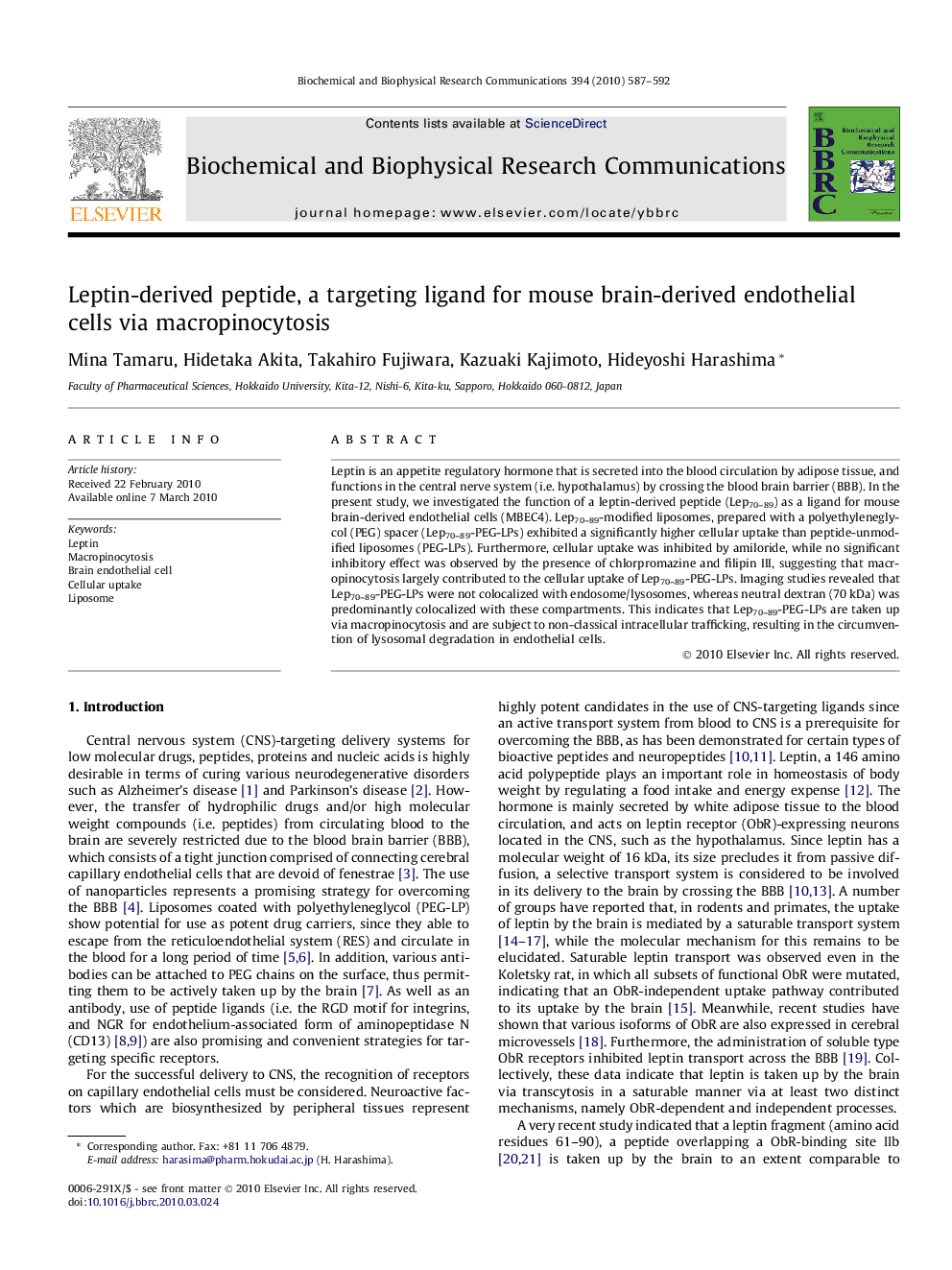| Article ID | Journal | Published Year | Pages | File Type |
|---|---|---|---|---|
| 1931953 | Biochemical and Biophysical Research Communications | 2010 | 6 Pages |
Leptin is an appetite regulatory hormone that is secreted into the blood circulation by adipose tissue, and functions in the central nerve system (i.e. hypothalamus) by crossing the blood brain barrier (BBB). In the present study, we investigated the function of a leptin-derived peptide (Lep70–89) as a ligand for mouse brain-derived endothelial cells (MBEC4). Lep70–89-modified liposomes, prepared with a polyethyleneglycol (PEG) spacer (Lep70–89-PEG-LPs) exhibited a significantly higher cellular uptake than peptide-unmodified liposomes (PEG-LPs). Furthermore, cellular uptake was inhibited by amiloride, while no significant inhibitory effect was observed by the presence of chlorpromazine and filipin III, suggesting that macropinocytosis largely contributed to the cellular uptake of Lep70–89-PEG-LPs. Imaging studies revealed that Lep70–89-PEG-LPs were not colocalized with endosome/lysosomes, whereas neutral dextran (70 kDa) was predominantly colocalized with these compartments. This indicates that Lep70–89-PEG-LPs are taken up via macropinocytosis and are subject to non-classical intracellular trafficking, resulting in the circumvention of lysosomal degradation in endothelial cells.
